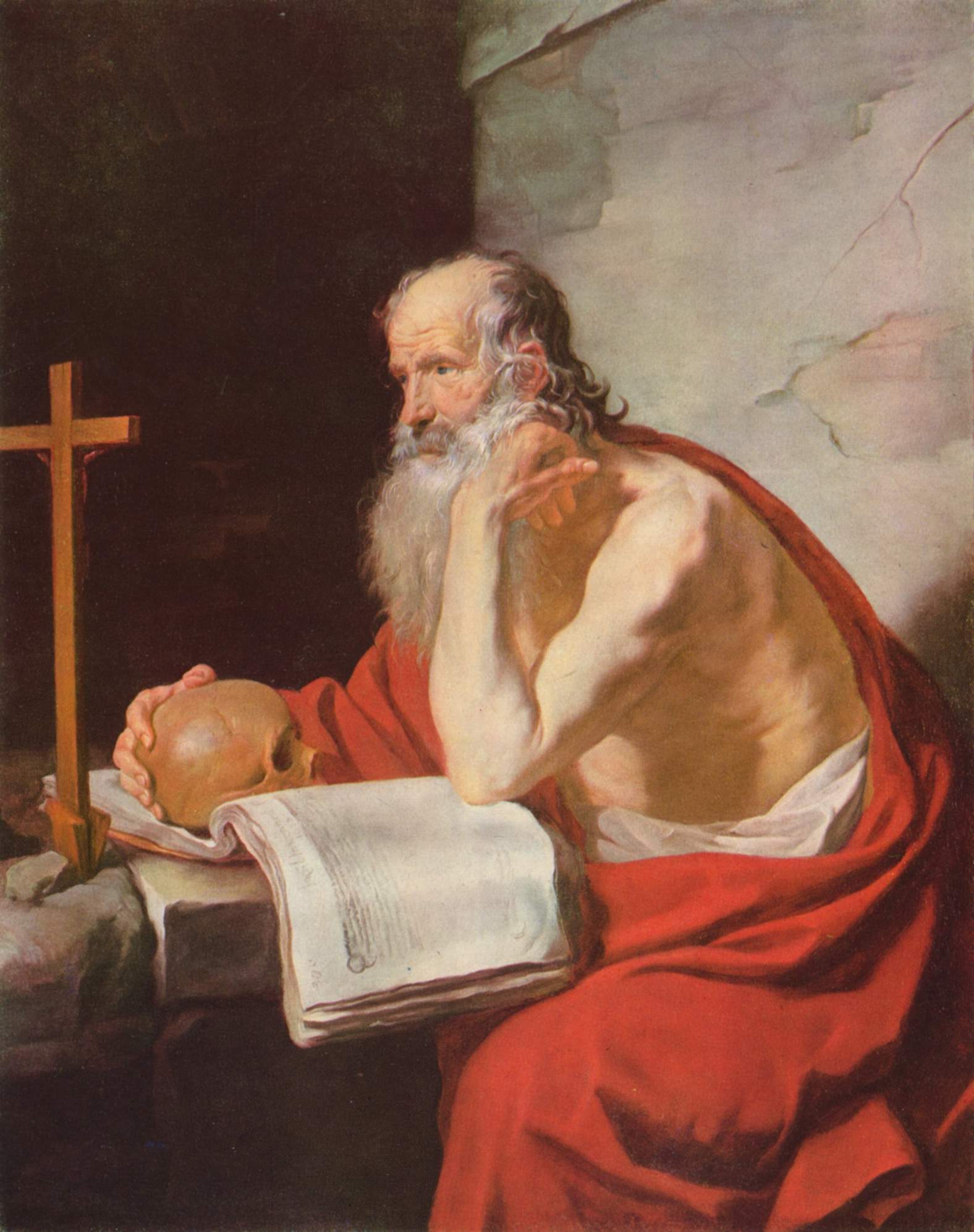Learn to read Sacred Scripture with the Church Fathers.
Overview
Earn your Master of Sacred Scripture (MSS) 100% online.
This program will equip students to traverse the pages of Scripture with skill and confidence. Illuminated by the deepest insights of the fathers and doctors of the Church, students will follow the well-worn paths carved out by the greatest Catholic biblical commentators of past and present.
“This program draws deeply from the well of Sacred Scripture, covering every book in the biblical canon and equipping you to read the Bible in its original languages. Together with an expert faculty trained in the best of contemporary biblical research, your tutors will include St. Augustine and St. Jerome, St. Basil and St. John Chrysostom. I warmly encourage you to apply today, and to join us as we study Sacred Scripture in the fullness of the Catholic tradition.” – Dr. Andrew Blaski, Program Director
Looking for information on programs, admissions, or financial aid? We’re here to help.
Graduate Degree
Master of
Sacred Scripture
- Online
- Eligible for transfer credits
2 to 6 years
Program Length
39
Total Credits
$426
Per Credit Hour
July 19
Application Due
August 26
Next Start Date
Ready to Apply?
Take your next step toward your success and your future!
“Beloved, let us ascend without hesitation to Holy Scripture through the excellent commentaries of the Fathers, as if on the ladder of Jacob’s ladder, by which the angels ascend and descend.”
– Cassiodorus (6th c.) –
Program Distinctives
- Students will read and study the entire canon of Sacred Scripture from Genesis to Revelation, with a dedicated faculty committed to unlimited biblical inerrancy.
- Students will learn to read and interpret the Bible alongside the Fathers of the Church, through the inclusion of patristic commentaries, homilies, and/or treatises in every Scripture course.
- Students will learn to read and translate Sacred Scripture in at least one of the two original languages (Greek or Hebrew).
For course information, please see the course requirements.

Course Requirements
Foundational Courses
PHS 607 Perennial Philosophy
SAS 602 Soul of Theology
Biblical Language
GRK 501 Greek I
GRK 502 Greek II
GRK 503 Greek Exegesis
or
HEB 501 Hebrew I
HEB 502 Hebrew II
HEB 503 Hebrew Exegesis
Old Testament
SAS 712 Pentateuch
Note: SAS 712 is a prerequisite for the remaining Old Testament courses.
SAS 713 Historical Books
SAS 714 Wisdom Books
SAS 715 Prophets
New Testament
SAS 716 Gospels
Note: SAS 716 is a prerequisite for the remaining New Testament courses.
SAS 717 Luke and Acts of the Apostles
SAS 718 Letters of St. Paul
SAS 719 Catholic Epistles and Revelation
Summative Evaluation
Written and Oral Comprehensive Exam
Submission of Written Research Sample(s)
Who Is This Program For?
- Those working in ministry
- Catholic Professionals
- Those pursuing doctoral work
- Personal Formation
Career Opportunities
- Scripture/Theology Teacher
- University/College Professor
- Director of Religious Education
- Youth Minister
- Catholic writer/speaker
FAQ
Is this an Online Program?
Yes, our 100% online courses make the MSS degree program flexible for working and busy individuals.
How do I apply?
Program Learning Outcomes
Upon completion of the Master of Sacred Scripture degree, students will be able to:
- Uphold and defend the seventy-three books of the biblical canon as the inspired and inerrant Word of God, addressing the most prevalent challenges to their divine origin and veracity.
- Explain with clarity the essential context, content, and meaning of Sacred Scripture in a Christocentric manner congruent with Catholic doctrine and the unanimous consent of the Fathers.
- Read and translate Sacred Scripture in at least one of the two original languages (Greek or Hebrew).
- Conduct effective and ethical biblical research, utilizing appropriate tools for exegesis and applying the core principles of Catholic biblical interpretation.
What is the Graduate Capstone?
The Summative Evaluation is the capstone of the student’s academic work in the MSS program at Holy Apostles College and Seminary. All candidates for the MSS degree are required to complete the Summative Evaluation exercise through the submission of a written research sample and a comprehensive exam. Full descriptions of the Summative Evaluation exercise are available on the Summative Evaluation page.
Is Holy Apostles College & Seminary accredited?
Are the Faculty members faithful to the Magisterium?
Who is the Program Director?
Program Director:
Dr. Andrew Blaski, ablaski@holyapostles.edu
For a full listing of our faculty, please visit Faculty Listing.
FAQ
Is this an Online Program?
Yes, our 100% online courses make the MSS degree program flexible for working and busy individuals.
How do I apply?
Program Learning Outcomes
Upon completion of the Master of Sacred Scripture degree, students will be able to:
- Uphold and defend the seventy-three books of the biblical canon as the inspired and inerrant Word of God, addressing the most prevalent challenges to their divine origin and veracity.
- Explain with clarity the essential context, content, and meaning of Sacred Scripture in a Christocentric manner congruent with Catholic doctrine and the unanimous consent of the Fathers.
- Read and translate Sacred Scripture in at least one of the two original languages (Greek or Hebrew).
- Conduct effective and ethical biblical research, utilizing appropriate tools for exegesis and applying the core principles of Catholic biblical interpretation.
What is the Graduate Capstone?
The Summative Evaluation is the capstone of the student’s academic work in the MSS program at Holy Apostles College and Seminary. All candidates for the MSS degree are required to complete the Summative Evaluation exercise through the submission of a written research sample and a comprehensive exam. Full descriptions of the Summative Evaluation exercise are available on the Summative Evaluation page.
Is Holy Apostles College & Seminary accredited?
Holy Apostles College and Seminary is accredited by the New England Commission of Higher Education (NECHE), the Connecticut Office of Higher Education (CTOHE), and the Association of Theological Schools (ATS). For more accreditation information visit here.
Are the Faculty members faithful to the Magisterium?
Who is the Program Director?
Program Director:
Dr. Andrew Blaski, ablaski@holyapostles.edu
For a full listing of our faculty, please visit Faculty Listing.

What You’ve
Been Looking For
An authentically Catholic education should be available to everyone.
Time and cost should not stand in your way.
You deserve the highest quality academics that are both convenient and affordable.
Let Holy Apostles set you on the path to achieving your goals.
Why Holy Apostles
Flexible & Online
Holy Apostles makes a quality education accessible. You can complete your degree any time, anywhere. Our small class sizes make learning easier, providing personalized attention from our excellent faculty.
Tuition you can afford
At Holy Apostles, we believe that a debt-free graduate is a gift to the Church. We are one of the most affordable colleges recommended by the Cardinal Newman Guide.
FAITHFULLY CATHOLIC
The Catholic university is “born from the heart of the Church,” as St. John Paul II stated in Ex Corde Ecclesiae.
From its very foundation, Holy Apostles College & Seminary has dedicated itself to proclaiming the truth and forming our students to do the same.
Explore the Possibilities
Looking for information on programs, admissions, or financial aid? We're here to help.
Speak to your personal Admissions Counselor today for more information.
Admissions Phone :
860-632-3000
Admissions Email:
admissions@holyapostles.edu
Contact Information
